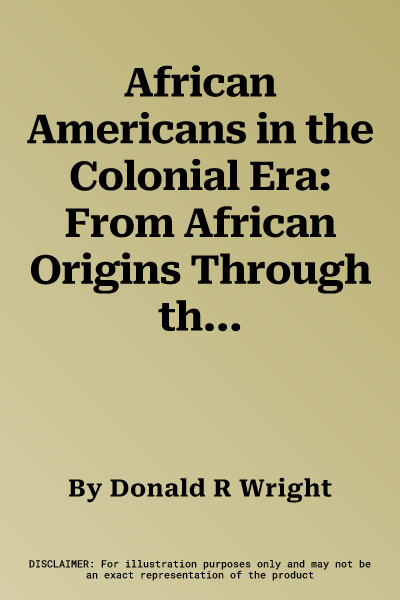Over recent decades few topics of American history have been subject to
greater attention and more thorough revision than African Americans in
colonial times. Acclaimed works by leading scholars, relying on new
bodies of evidence and writing from a fresh, Atlantic perspective, have
provided a broadened, more nuanced view of the topic. In this third
edition of one of the most popular books in our American History Series,
Donald Wright works new interpretations into a narrative that provides a
clear understanding of the scope and nature of the early
African-American experience. Included are discussions of African
Americans' African origins; the Atlantic slave trade, based on the
latest data from an on-line Trans-Atlantic Slave Trade Database; the
origins of slavery and race-based prejudice in the mainland colonies;
the evolutionary formation of African-American culture; and the effects
of the American Revolution on men and women of African descent, at the
time and long thereafter.
This third edition views African Americans in the British North-American
mainland colonies more as their contemporaries did: as persons from one
of the four continents who interacted economically, socially, and
politically over a period of 180 years in a vast, vibrant, complex
Atlantic world. It shows how the mainland North-American society that
resulted from these interactions reflected the mix of Atlantic cultures
and how the republic that a group of these people eventually constructed
used European ideas to support creation of a favorable situation for
those in control, persons largely of European descent. The African and
African-American men and women, whose forebears had added greatly to the
region's economic and cultural viability, found themselves in 1789 with
the least benefit from the nation they helped bring into existence.
Of special value is the book's bibliographical essay, an expansion and
updating of earlier versions that led the historian Ira Berlin to label
Wright "the historiographer of slavery in the early period."

